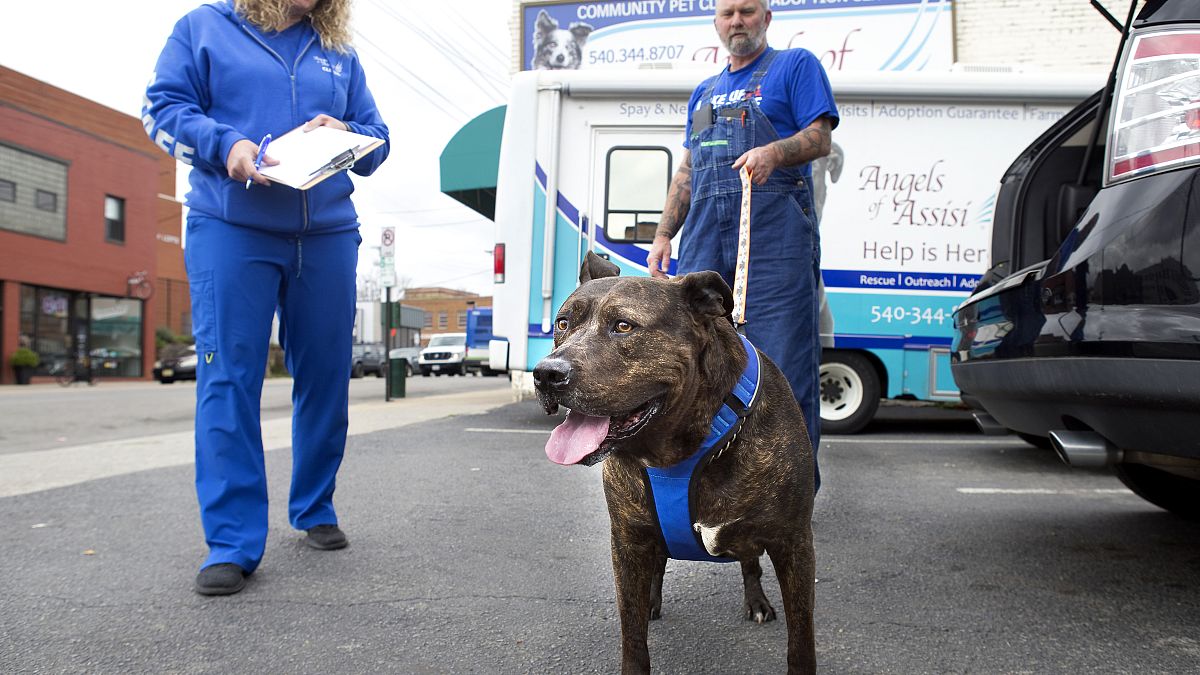We asked expert Sean Wensley how to care for pets during the coronavirus pandemic.
In the middle of a pandemic, it's those closest to us that we worry about most: our friends, families and... pets.
The most pressing question for many pet owners is whether their beloved animals can catch the new coronavirus.
The World Health Organization says no.
There is no evidence to suggest that COVID-19 in the form it appears in humans can be passed onto companion animals and similarly, no evidence of a pet transmitting the virus to humans. So even if you have the disease, you shouldn't worry about passing it to your pets.
But senior vet Sean Wensley, who works for veterinary charity PDSA, says regular hygiene measures are still important.
"There's no evidence of any ongoing transmission of the disease by our pets," he told Euronews.
"Nevertheless, as we seek to understand the disease, we think it's really important that we apply the usual hygiene measures that we ought to be applying all the time, so washing our hands before and after contact with our pets, their leads, their food, their poop, but that's just all good precautionary advice."
Even if our pets don't seem to be physically threatened by the disease, there's still the matter of making sure they're cared for properly while under lockdown. In most European countries that have introduced mandatory social-distancing measures, there are exemptions to the stay-inside directive if you need to walk your dog. But it's important to keep the walk as short as possible, and avoid other people. Most parks and dog run parks are closed to keep human contact to a minimum.
"When we're able, if we're not self-isolating because of suspected signs of coronavirus, and are therefore still able to take our dogs for a walk, we should make sure they're kept on a lead, we wash our hands before we take them out and we crucially keep them two metres distance or whatever your local government advice is, away from other dog walkers," explained Wensley.
If you're self-isolating because you think you might have COVID-19 but can't keep a greyhound indoors all day with you, it's okay to reach out for help, said Wensley. Asking a friend or family member to take your dog for a walk is a good move, as long as both people take precautions.
Again, pets can't get the disease, but items like their collar or lead could transmit it if an infected person touches them.
"That person shouldn't come into your house, you should maintain a two-metre distance from them, and just be sensible, wash your hands, wipe your pet down, before you transfer them, ask them to bring their own lead with them."
And just like us, pets aren't overly fond of big changes in routine. Whatever lockdown measures look like in your household, it's likely that the routine isn't exactly the same as it was before the pandemic. That could be a recipe for stressed out pets, according to Wensley.
"For some pets, having people around in the house that they wouldn't normally have, perhaps children, if there's a change in routine that can be stressful for some of our animals. Cats are particularly prone to that."
Whether it's a pet bed, or under your bed, Wensley said it's important to identify a place where your pet can minimise their stress.
"I think we all need to in these trying times," he said.
